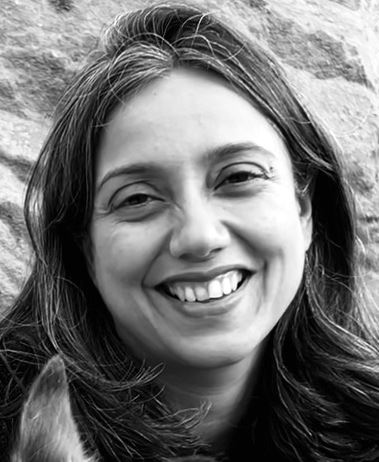 back to November 2024 newsletter
back to November 2024 newsletter
by Kusum Punjabi, AMFT
Director of DEI Kusum Punjabi shares how different cultures honor the new moon, and how we can help our clients work through the varied emotions they may be experiencing during this time of year
As mental health practitioners in California's diverse therapeutic landscape, we regularly encounter the richness of intersecting cultural narratives. The October new moon of 2024 offers a particularly poignant moment for reflection, as it coincides with Diwali, Día de los Muertos, and Halloween – three distinct cultural traditions that illuminate how the same celestial event can carry profoundly different meanings across communities.
In Hindu traditions, this new moon marks Diwali, the festival of lights. Devotees celebrate Rama's triumphant return from exile, symbolizing the victory of light over darkness, knowledge over ignorance. Homes glow with diyas (clay lamps), and families gather to share sweets, reflecting the sweetness of homecoming and renewal. For our South Asian clients, this period may evoke complex emotions tied to family obligations, cultural identity, and the challenge of maintaining traditions in the South Asian diaspora.
Simultaneously, for our Latine/a/o/x communities, this lunar phase heralds the approach of Día de los Muertos, when the veil between worlds grows thin. Unlike Halloween's spooky undertones, this Mexican tradition views death not as frightening but as a natural continuation of life. Families construct ofrendas (altars) adorned with marigolds, photos, and their departed loved ones' favorite foods. For these clients, this season might surface grief differently – not as something to process alone, but as a communal experience of remembrance and celebration.
Meanwhile, the Western tradition of Halloween transforms this same dark moon into a night of costume and masquerade. What began as the Celtic Samhain, marking summer's end and the harvest season, evolved through Christian influence into All Hallows' Eve. Today's secular celebration invites participants to play with identity itself – a temporary liberation from fixed social roles that might resonate particularly with clients exploring questions of personal authenticity and social presentation.
This convergence of traditions offers a powerful lesson in phenomenology – how our lived experiences shape our perception of reality. The same new moon appears radically different through these cultural lenses: a triumph of light, a bridge between worlds, or a night of transformation. None of these perspectives is more "true" than the others; each represents a valid way of making meaning from the same astronomical event.
For us as therapists, this cultural confluence reminds us to practice radical openness in our clinical work. When a client mentions "celebrating this weekend," we must resist assuming we know what that means. Their celebration might involve lighting diyas, arranging marigolds, or carving pumpkins – or perhaps something entirely different.
This intersection of traditions also highlights how cultural identity isn't monolithic but fluid and often multiplicative. A client might celebrate Halloween at school, build an ofrenda at their grandmother's house, and join Diwali festivities with friends. Each experience adds depth to their lived experience rather than diminishing other aspects of their identity.
As we move through this season, let us embrace these overlapping narratives as an invitation to deepen our cultural humility. Every client brings their own moon, their own light, their own way of marking time and making meaning. Our role is not to assume but to inquire, not to know but to learn, creating space for all the diverse ways humans understand and experience their world.
